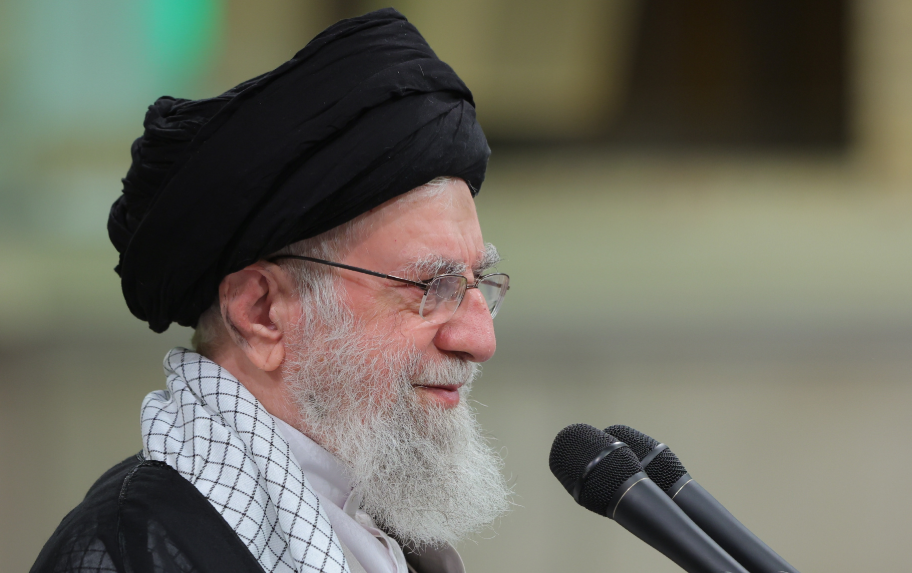Following U.S. airstrikes on its nuclear sites and a regional ceasefire, Iran pivots eastward—deepening ties with China and Russia while firmly rejecting talks with the U.S. The article explores Tehran’s strategic realignment and its implications for global geopolitics.
Iran Says ‘No’ to U.S. Diplomacy and ‘Yes’ to Eastern Powerhouses
In the aftermath of U.S. airstrikes on its nuclear facilities and a fragile ceasefire halting the most intense Israel-Iran conflict in decades, Iran is swiftly redefining its foreign policy priorities—by turning decisively to the East.
Just days after the ceasefire, Iran’s Defense Minister Aziz Nasizadeh made his first foreign trip since the 12-day conflict. He arrived in Qingdao, China, to attend the Shanghai Cooperation Organization (SCO) summit—a powerful signal that Tehran now views eastern alliances as the cornerstone of its strategic future.
During the summit, Nasizadeh thanked China for its understanding and support of Iran’s “legitimate stance” and called on Beijing to play a more active role in ensuring that the fragile ceasefire holds. China, through its Defense Minister Dong Jun, condemned what it described as “bullying acts”—a veiled reference to U.S. foreign policy.
Russia also stood firmly with Iran. Moscow denounced what it called “U.S. and Israeli aggression,” affirming its support for Iran’s sovereignty and criticizing the attacks as violations of international norms.
At the same time, Iran’s President Masoud Pishkian addressed the Eurasian Economic Council remotely, where he directly blamed the United States and Israel for what he labeled as “terrorist attacks” on Iran’s peaceful nuclear infrastructure.
“These violent attacks are a direct violation of global rules,” Pishkian said, referencing the June 30th airstrikes. “Had we not responded, the region could have slipped into full-scale war.” He emphasized that the nuclear sites targeted were peaceful, monitored by the International Atomic Energy Agency (IAEA), and under full compliance with global regulations.
Pishkian also accused Washington and Tel Aviv of broader offenses—claiming illegal operations were conducted against Iranian servicemen, educators, and civilians, even outside official service zones.
He expressed deep gratitude to Iran’s regional allies and called for intensified cooperation in areas like trade, technology, energy, and finance. A key proposal was the establishment of joint banking systems to circumvent Western sanctions—a move clearly aimed at reducing Iran’s dependence on the Western-dominated financial system.
China has already echoed Iran’s concerns, labeling the U.S.-led strikes as a threat to the global nuclear non-proliferation regime. The growing support from Beijing and Moscow has now visibly solidified Tehran’s eastward pivot.
This alignment is more than symbolic. For Iran, the SCO and the Eurasian Economic Union are not just platforms for diplomacy—they offer geopolitical cover, economic lifelines, and ideological unity. With these alliances, Tehran gains protection and partnership without facing the threat of airstrikes or sanctions.
Iran’s foreign policy has now officially shifted. Tehran is openly aligning with the visions of Xi Jinping and Vladimir Putin, joining their push against what they describe as Western hegemony and global “bullying” tactics.
Meanwhile, in Washington, the Trump administration claims diplomacy is still possible. U.S. officials say that Special Envoy Whitf and President Trump’s team remain open to discussions with Iran, and are in active communication with Gulf and Arab partners.
Despite these claims, Iran’s stance remains firm. Foreign Minister Abbas Araqchi dismissed any notion of resuming negotiations with the U.S., stating clearly: “No, there is no agreement whatsoever right now for restarting the negotiations with the U.S. I say this openly—no appointment has been made, no promise has been made, and we haven’t even talked about restarting the talks.”
The message from Tehran is unambiguous: China and Russia offer support without coercion. And that is the partnership Iran now prefers.
Disclaimer:
This article is based on ongoing developments and official statements. Geopolitical situations may evolve rapidly. Readers are advised to follow credible news sources for the latest updates.

